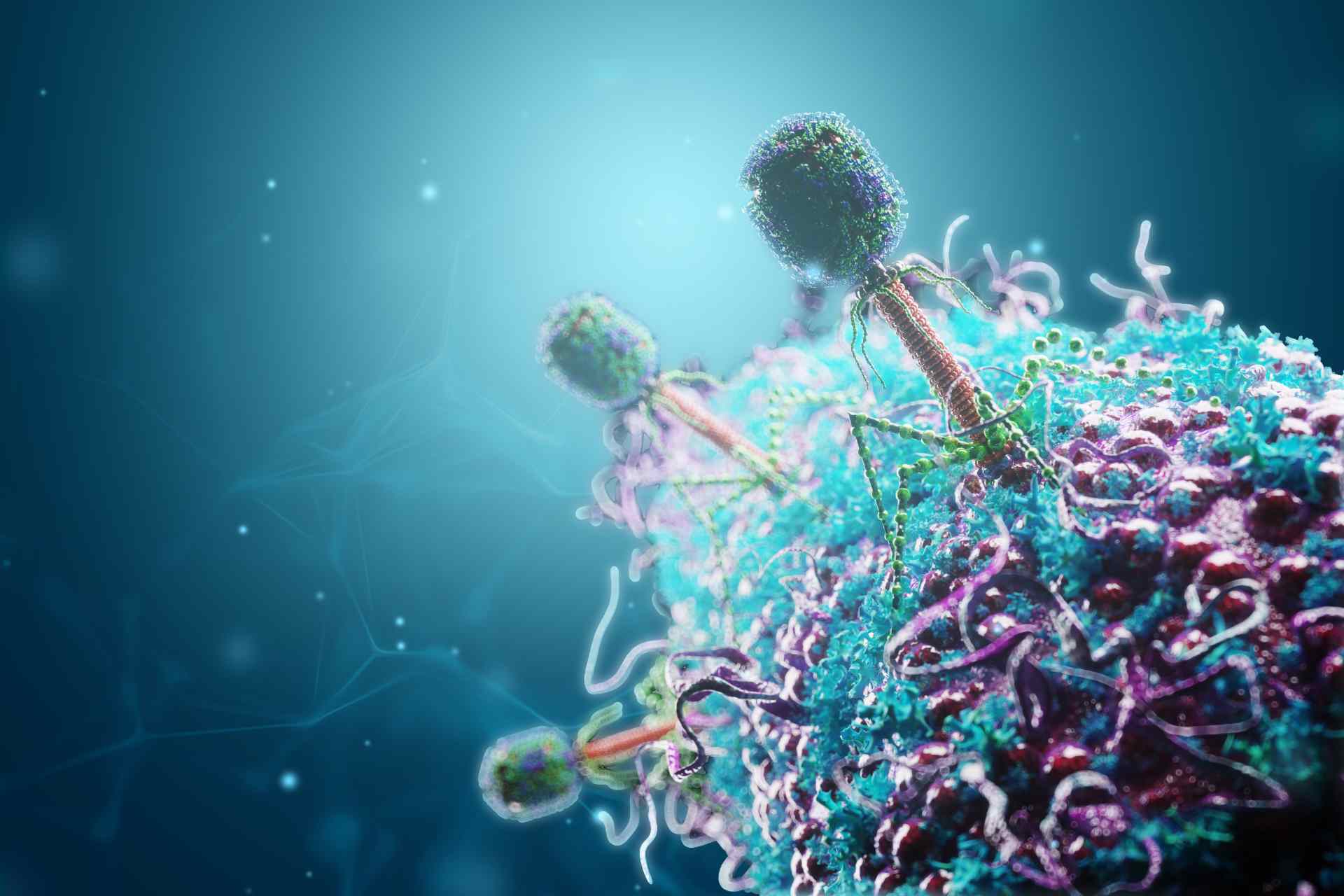Taking drugs by mouth is an ideal way to deliver them because it’s easy and noninvasive, but it’s not possible for all types of medications. Now, researchers have engineered viruses that target gut bacteria to deliver therapeutic proteins, reducing inflammation in mice with colitis and weight gain in obese mice.
The findings, published in Nature Biotechnology, suggest that bacteria-infecting viruses could be used as a drug delivery system for conditions such as inflammation and obesity.
Oral drug delivery is challenging because drugs must survive harsh stomach conditions and be absorbed in the gastrointestinal trait. Viruses that infect bacteria, called bacteriophages or phages, are abundant in the gut and can persist for long periods of time.
Researchers led by Zachary Baker at Virginia Tech in Blacksburg hypothesized that genetically engineered phages could be used to deliver therapeutic proteins by infecting gut bacteria and releasing proteins upon breaking open bacterial cells.
Engineered phages
The phages were designed to express a fluorescent marker and released large amounts of it after infecting gut bacteria. In mice, the engineered phages successfully infected gut bacteria and produced fluorescent proteins in the gut, demonstrating the feasibility of using phages to deliver therapeutic proteins.
Next, the researchers engineered phages to produce an anti-inflammatory protein called Serpin, which inhibits a key driver of inflammation in colitis. In mice with the condition, phage-delivered Serpin promoted anti-inflammatory responses and improved disease symptoms.
The team also engineered phages to produce a protein that mimics a satiety hormone, and tested its effects in a mouse model of obesity. Obese mice colonized with the engineered phages gained less weight and ate less food, while also showing lower levels of inflammatory molecules associated with obesity.
Drug delivery
The engineered phages did not alter the composition of the gut microbiota nor did they cause adverse effects, the researchers found. The findings suggest that engineered phages can deliver beneficial proteins in the mammalian gut by infecting bacteria naturally present there.
The study also highlights the need for further research on factors such as diet, bacterial resistance and potential impacts on the gut microbiota. Future applications could involve using phages to produce different therapeutic proteins for treating complex diseases, the authors say.
“Considering that these diseases are […] multifaceted, the in-situ production of other protein therapeutics to target other aspects of these diseases, whether together, at different stages, or alone, would be exciting future lines of investigation.”









